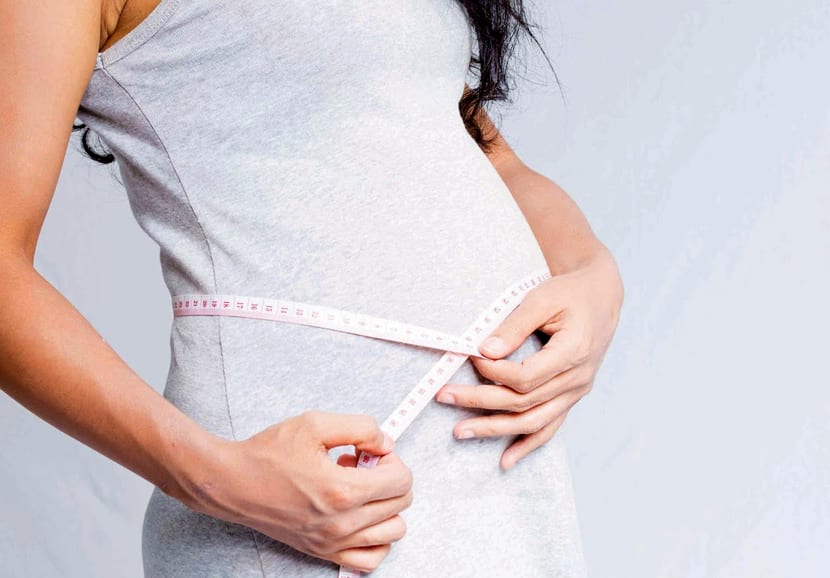
Pregorexia is an eating disorder that appears during pregnancy. It occurs in pregnant women who have an excessive fear of gaining weight and looking fat during their pregnancy.
This disorder, also called anorexia in pregnancy, is characterized by a feeling of panic to gain weight accompanied by a drastic decrease in calorie intake and a distortion of body image.
Some experts associate pregorexia with the body changes typical of pregnancy and the stress suffered by some women when assuming motherhood. It is undeniable the great social pressure that many women feel about the need to have a body ten even during pregnancy and immediately after childbirth.
The risk of suffering from pregorexia increases in those women who have already suffered some type of eating disorder before their pregnancy.
Weight gain during pregnancy
During pregnancy, the usual weight gain is between 9 and 12 kilos, depending on the weight and constitution of the woman before pregnancy. The weight of the baby together with the amniotic fluid and the placenta is approximately seven kilos.
Obviously, a pregnant woman does not need to "eat for two." Yes, it is highly recommended to carry out a balanced, healthy and varied diet and avoid snacking and consuming empty calories.
In some specific cases, the gynecologist may prescribe a supplement of iron, folic acid and / or a vitamin complex if necessary.
During the first trimester, a pregnant woman with medium activity needs a caloric intake of around 2000 calories and around 2500 for the rest of her pregnancy.
In any case, the health of the mother and the baby should not be compromised in any way by an aesthetic issue.
Dangers of pregorexia for the baby
Lack of essential nutrients during pregnancy can lead to:
- Delayed uterine growth of the fetus.
- Decreased amniotic fluid,
- Low newborn weight.
- Heart problems.
- Respiratory insufficiency.
- Alterations in the neurodevelopment of the baby.
- Stillbirth in the most extreme cases.

Dangers of pregorexia for the expectant mother
- Premature birth
- Complications during childbirth.
- Anemia.
- Risk of malnutrition.
- Hypertension.
- Descaling of the bones.
- Hair loss.
- Dry and dehydrated skin.
- Hormonal alterations
- Low production of breast milk.
- Increased likelihood of suffering from depression both during pregnancy.
Warning signs to detect a possible case of pregorexia
- Excessive exercise practice.
- Obsession with food and weight loss.
- Insufficient consumption of calories.
- Restriction of a large number of foods.
- Constant concern for his physique.
- Induction to vomiting.
- Avoidance of pregnancy-related topics
- Minimal weight gain or even loss during pregnancy
- Excessive anxiety at the idea of gaining weight
- Chronic fatigue
- Listlessness and bad mood.
Is pregorexia treatable?
To treat pregorexia, the intervention of a multidisciplinary team is necessary to control the evolution of the entire pregnancy and the puerperium.
This monitoring should include monitoring of the eating disorder. It is necessary to normalize meals by reducing the degree of anxiety and tension during them.
In most cases, individual psychotherapy will be necessary focused on the acceptance of both bodily changes and future motherhood.
There are some centers where group therapies are performed. These groups are of great help because they allow them to be in contact with other women who are or who have overcome the same situation.
It is important that the family has enough information about this disorder to know how to be supportive and show the necessary understanding and care.

Regain figure after giving birth
To regain your figure after childbirth, you can regularly practice some type of physical exercise such as Pilates, hypopressives or yoga. This will help you both physically and emotionally.
Keep in mind that after giving birth your body undergoes a significant hormonal change and it is better to take things relatively calmly to regain "normalcy".